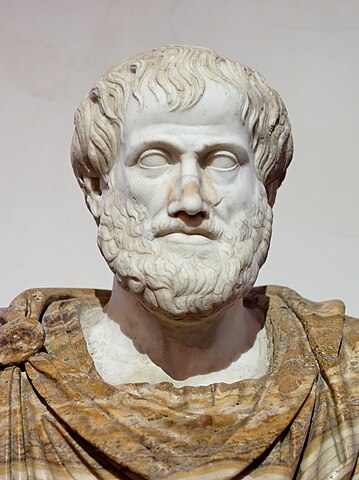Riddles of Aristotle
By: Justin Zablocki (author, Zablocki Bros. LLC) on October 18th, 2013 12:00 AM.
FacebookTwitterGoogle+PinterestReddit

http://en.wikipedia.org/wiki/File:Aristotle_Altemps_Inv8575.jpg
Riddles have been around for a very long time. We recognize them today as little puns to be solved for fun, and many of us even know a few of them off hand. But to the people in Greek society riddles were more important because they were very useful in answering unanswerable questions and a they were large source of entertainment. One of the most avid riddle collectors and the first person to actually study riddles with regards to rhetoric was Aristotle. He said the following about riddles in one of his academic works:
Well-constructed riddles are attractive [because] a new idea is conveyed, ... The thought is startled, and ... does not fit in with the ideas you already have... The effect produced ... is a surprise.
This statement conveys his thoughts about riddles, a thought shared by most scholars of his time. Riddles are good and useful because they use hidden meanings to convey ideas that are hard to convey in other ways and in the end, surprise you. One riddle that he mentions in one of his works:
I saw a man glue brass on another with fire.
This does not seem like a riddle. But the fact that it uses a strange combination of words and contains a metaphor creates a veiled meaning making this a riddle.
Aside from his own riddles he systematically collected riddles from others. He was a fan of the Delphic Oracle. One Delphic riddle goes as follows:
Where two winds by hard compulsion blow, and blow answers blow, and woe lies upon woe.
This riddle was given to the Spartans by Delphi, who said if they found the bones of Orestes at this described location they could defeat Tegeans. The bones were found in Tegea, right under their enemies nose.
Aristotle was a great academic and did a lot for a lot of different fields. He was one of the original sparks that have exploded into modern technology and academics. With his original thinking and massive philosophical contributions he has dug his spot in history. For more information about Aristotle visit his Wikipedia page.
For some great riddles of your own visit the hard riddles section.